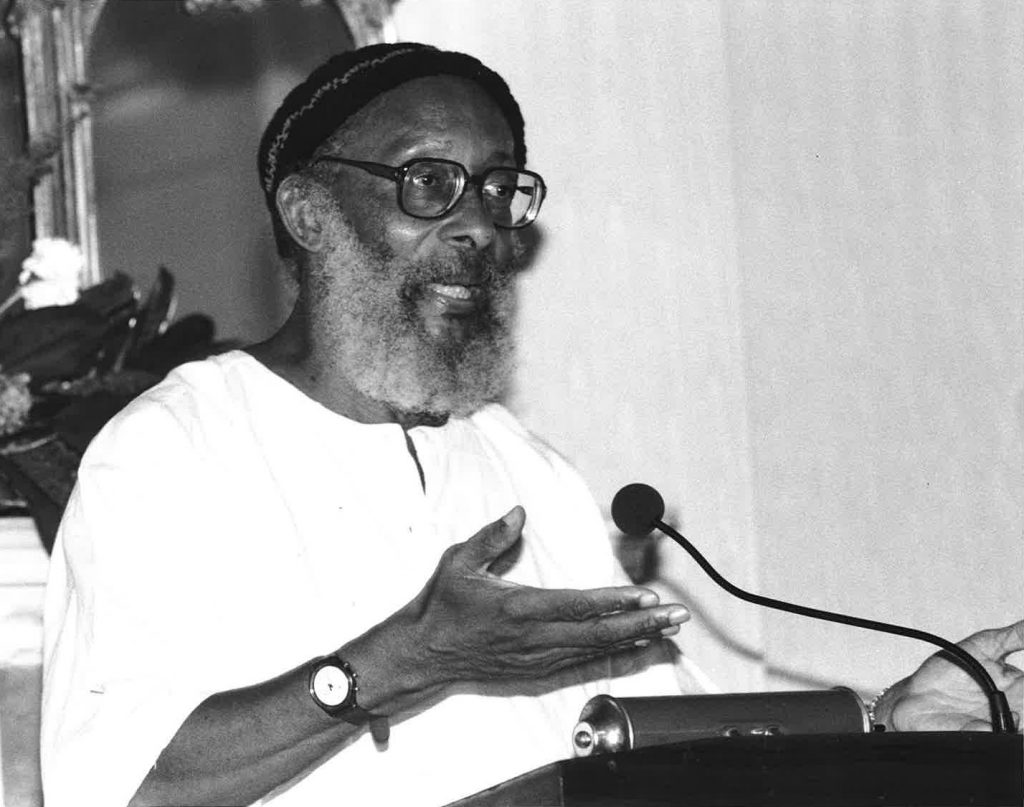The early notices of Kamau Brathwaite’s death yesterday emphasized the indisputable fact that he was a Caribbean and West Indian writer. The emphasis says something crucial about Brathwaite as a person and an artist. He wrote over thirty books of an astonishing variety and sophistication—history, anthropology, tracts and polemics, poetry and fiction (the poetry and fiction unique and radical in the way language and the technologies of language are understood and deployed). He ranged over three continents during his tremendous career. He went to college in England and studied with F. R. Leavis. He did not only live and work in Africa, he had an Africanist period in his thinking and took an African first name. He taught in New York. He never, though, separated himself from either his imaginative allegiance to the speech and culture of the English-speaking Caribbean or his physical allegiance to his birthplace, Barbados. The eulogies now pouring out of that island are rich with the kind of grief and pride that are triggered only by the loss of a beloved native son.
It’s just as indisputable, though, that unless it is understood the right way, saying Brathwaite was a Caribbean and West Indian writer also obscures something crucial about him as a person and an artist. Brathwaite was born in 1930, only five years after Frantz Fanon and only twelve years after Nelson Mandela. He was one of the last surviving members of the first generation of postcolonial writers and intellectuals, the generation that witnessed Partition, Dien Bien Phu, Sharpeville, the Algerian war of independence, the Mau Mau Uprising, the Cuban Revolution, the assassination of Patrice Lumumba. No other writer of that remarkable generation was more transparent to the inner process of decolonization; and no other writer among his peers was as committed to making literature align down to its very bones, down to its typefaces and orthographies, with the task of forging a new consciousness. Brathwaite’s experimentalism was never just experimentalism. Brathwaite’s insistence on his local idiom and his theories of “nation language” were as far removed as possible from writing in the vernacular for the sake of the vernacular. These elements in his art and craft were always a response to the largest problem of the postcolonial historical experience: the problem of rehabilitating the colonized mind and restoring it to its equilibrium. His solutions were radical and stunning, in both theory and practice. Those of us who share that history, whether East Asian, South Asian, Middle Eastern, African, Caribbean, American, are enormously indebted to him for the clear and steady way he confronted and clarified our understanding of ourselves. So are those of us who believe in the power of literature.
Read Kamau Brathwaite’s poem “Coral” in our Winter 2019 issue.
Vijay Seshadri is the poetry editor of The Paris Review.
from The Paris Review https://ift.tt/31s5qcx

Comments
Post a Comment